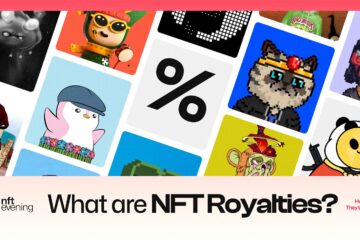The world of online gambling has always been quick to adopt new technology, and in 2025, cryptocurrency stands at the center of that change. Cryptocurrency once started as an alternative payment method for tech-savvy players.
However, it has now become a selling point of many online casinos. The reason for this is not far-fetched − crypto casinos offer speed, global access, and blockchain-backed transparency.
But as crypto adoption grows, the need for clear rules on how payments are handled continues to increase. Regulators worldwide are looking for ways to tighten the oversight that made crypto a tool for money laundering, fraud, and tax evasion. The benefit of this enforcement is two-sided. Players benefit from safer platforms, while operators gain legitimacy in an industry once criticized for being underregulated.
2025 Regulatory Laws on Crypto Casino Payments
With the additional benefits of cryptocurrency like fast payouts and borderless transactions, players and platforms do not hesitate to adopt its usage. Additionally, cryptocurrency brings blockchain technology, along with a layer of trust.
Nonetheless, a fundamental question arising from its usage is the regulation of crypto payments to ensure their safety and fairness. Thankfully, authorities and governments have taken the initiative to ensure that cryptocurrency does not fall into a blackhole and have new rules regarding it.
Licensing of Crypto Casino Sites
Earlier, most crypto casinos operated offshore. This means they were not controlled or regulated by any authority. However, the story has changed. It is now mandatory that crypto gambling platforms hold licences from reputable gambling authorities before they can handle cryptocurrency transactions. Some of the renowned regulatory bodies are the UK Gambling Commission, Malta Gaming Authority, and the Curacao eGaming.
These bodies enforce strict compliance measures and fair gaming practices. Many regulators also require casinos to disclose their blockchain transaction audit. The checks continue over time, as long as the crypto casino remains functional.
KYC Is a Must
While cryptocurrencies were once known for their anonymity, that is no longer the case. Today, crypto casinos implement mandatory KYC checks to verify player identities. They even do this before the player can be allowed to make deposits or withdrawals in the gambling account.
This helps them to monitor and report players who use the platform as a money laundering scheme. It also prevents anyone below the legal gambling age from accessing the platform.
Taxation and Reporting Obligations
In 2025, taxation rules around crypto casino winnings have become clearer. Most jurisdictions require casinos to provide automated tax reports linked to blockchain transactions. The goal is to ensure that both players and operators meet their financial obligations. It also helps reduce tax evasion risks while integrating the crypto gambling sector into the broader financial system.
Implementing the Use of Stablecoins
One major risk of transacting using cryptocurrencies is their volatility. Cryptocurrencies such as Ethereum and Bitcoin are renowned for experiencing sudden spikes and price reductions. This affects players and operators, as payment is made according to the market prices of these coins. It could be either less or more for both parties.
Therefore, popular crypto casinos convert the value of cryptocurrencies to stablecoins or fiat currencies, such as USDT/USDC or EUR. This ensures transparency and protects the players from volatility.
Smart Contract Auditing
Smart contracts are blockchain-based agreements that automatically execute payouts when certain conditions are met. They are increasingly used to regulate crypto casino payments, ensuring fairness and eliminating disputes.
Smart contracts are tools for building trust between players and operators. They also help create records that can be audited in real time.
How Online Casinos Adapt to Regulation in 2025
The rise of crypto payments hasn’t just affected gambling laws. It has also changed how online casinos market themselves. Operators know that players want both excitement and security. They now build on this to highlight their compliance with updated rules as part of their branding.
For example, leading online casinos in Canada prominently display their licensing, fair play policies, and blockchain-based transparency on their landing pages. They have actually integrated compliance into the overall user experience. This has earned them more trust and attracted players who previously doubted cryptocurrencies.
The following is a summary of the strategic marketing techniques online casinos are adopting in 2025 to maintain equilibrium between creativity and rules:
| Strategy | How It Works | Outcome |
| Regulation as a Selling Point | Showcasing licenses, KYC processes, and compliance badges directly on websites | Build trust with players who want safety in crypto gambling |
| Blockchain Transparency | Using blockchain audit as proof of fair play and secure payments | Players seeking fairness and accountability are attracted to use the platform |
| Localized Campaigns | Tailoring ads to specific regions, like Canada, where laws are stricter but clearer | Helps casinos attract high-value players |
| Smart Contract Payouts | Showcasing instant, automated payouts through smart contracts | Demonstrates efficiency and eliminates disputes |
| Educational Content | Publishing guides about crypto safety, taxes, and regulations | Positions casinos as trustworthy and player-friendly |
Conclusion
The regulation of crypto casino payments in 2025 is only to enforce rules. It is also about ensuring transparency and fairness. Crypto casinos can now thrive without losing player trust. In fact, the increasing regulation is paving the way for innovation. Casinos can now design safer payment systems and expand into regions where digital currency was once seen as too risky.
For players, the result is a more transparent experience that combines entertainment with financial security. For operators, compliance provides a competitive edge in attracting more users and building trust. Going forward, the challenge is to ensure crypto casinos remain exciting and sustainable.
 Bitcoin
Bitcoin  Ethereum
Ethereum  Tether
Tether  XRP
XRP  USDC
USDC  JUSD
JUSD  TRON
TRON  Lido Staked Ether
Lido Staked Ether  Dogecoin
Dogecoin  Figure Heloc
Figure Heloc  Cardano
Cardano  Wrapped stETH
Wrapped stETH  Bitcoin Cash
Bitcoin Cash  WhiteBIT Coin
WhiteBIT Coin  Wrapped Bitcoin
Wrapped Bitcoin  Wrapped eETH
Wrapped eETH  USDS
USDS  Monero
Monero  Binance Bridged USDT (BNB Smart Chain)
Binance Bridged USDT (BNB Smart Chain)  Chainlink
Chainlink  LEO Token
LEO Token  Coinbase Wrapped BTC
Coinbase Wrapped BTC  WETH
WETH  Stellar
Stellar  Ethena USDe
Ethena USDe  Zcash
Zcash  Canton
Canton  Sui
Sui  Avalanche
Avalanche  Litecoin
Litecoin  Hyperliquid
Hyperliquid  World Liberty Financial
World Liberty Financial  USDT0
USDT0  Hedera
Hedera  Shiba Inu
Shiba Inu  Dai
Dai  sUSDS
sUSDS  Ethena Staked USDe
Ethena Staked USDe  Toncoin
Toncoin  PayPal USD
PayPal USD  Cronos
Cronos  Rain
Rain  USD1
USD1  Polkadot
Polkadot  Uniswap
Uniswap  MemeCore
MemeCore  Mantle
Mantle  Bitget Token
Bitget Token 


